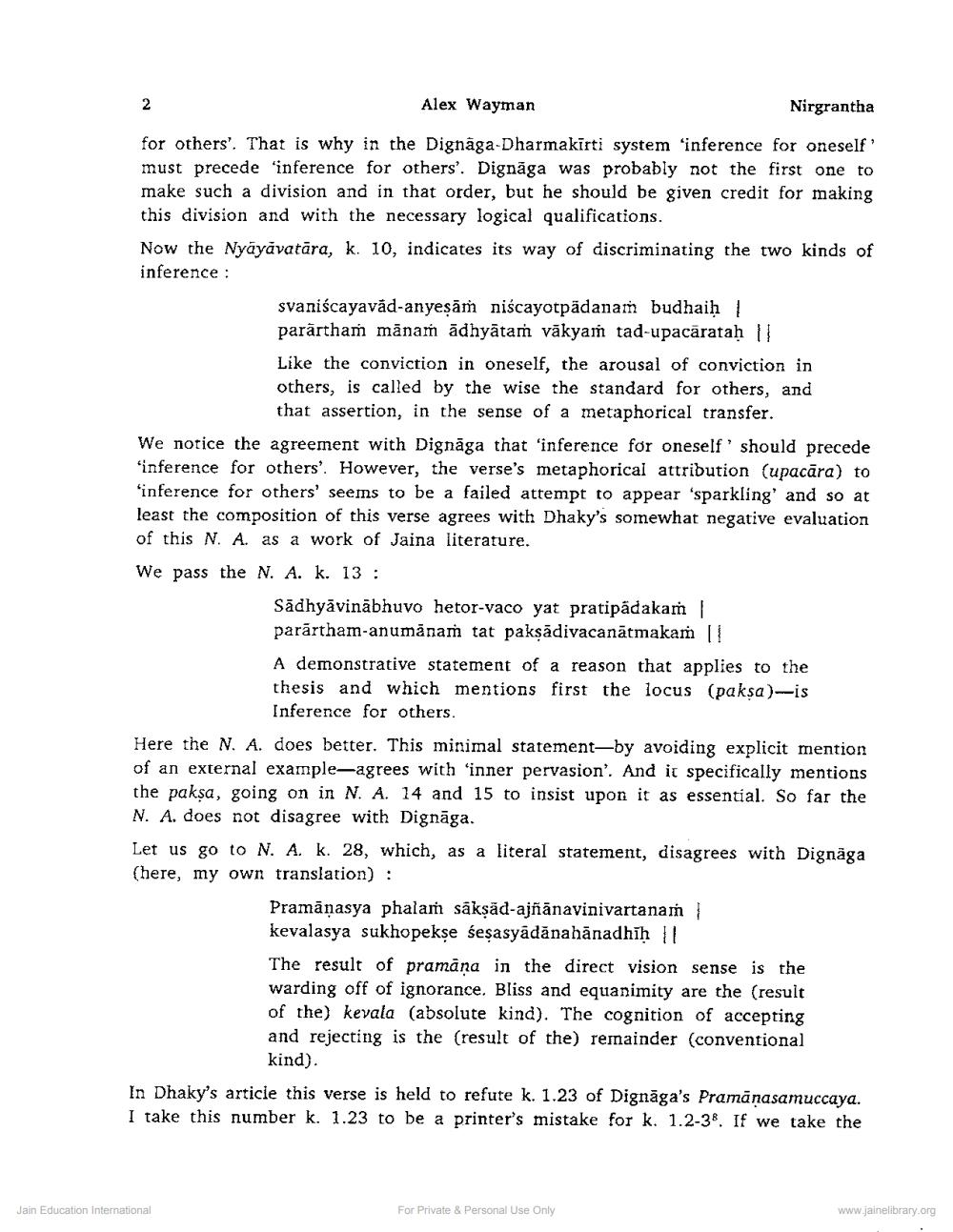________________
Alex Wayman
Nirgrantha
for others'. That is why in the Dignaga-Dharmakirti system inference for oneself' must precede 'inference for others'. Dignaga was probably not the first one to make such a division and in that order, but he should be given credit for making this division and with the necessary logical qualifications.
2
Now the Nyāyāvatāra, k. 10, indicates its way of discriminating the two kinds of inference :
svaniscayavad-anyeṣām niścayotpädanam budhaiḥ | parärtham manam adhyātam vakyam tad-upacarataḥ ||
Like the conviction in oneself, the arousal of conviction in others, is called by the wise the standard for others, and that assertion, in the sense of a metaphorical transfer.
We notice the agreement with Dignaga that 'inference for oneself' should precede inference for others'. However, the verse's metaphorical attribution (upacāra) to 'inference for others' seems to be a failed attempt to appear 'sparkling' and so at least the composition of this verse agrees with Dhaky's somewhat negative evaluation of this N. A. as a work of Jaina literature.
We pass the N. A. k. 13:
Sädhyāvinābhuvo hetor-vaco yat pratipädakam | parārtham-anumanam tat pakṣādivacanātmakam ||
Jain Education International
A demonstrative statement of a reason that applies to the thesis and which mentions first the locus (pakṣa)-is Inference for others.
Here the N. A. does better. This minimal statement-by avoiding explicit mention of an external example-agrees with inner pervasion'. And it specifically mentions the paksa, going on in N. A. 14 and 15 to insist upon it as essential. So far the N. A. does not disagree with Dignaga.
Let us go to N. A. k. 28, which, as a literal statement, disagrees with Dignaga (here, my own translation) :
Pramāṇasya phalam sākṣād-ajñānavinivartanam | kevalasya sukhopekse sesasyädänahanadhih il
The result of pramana in the direct vision sense is the warding off of ignorance. Bliss and equanimity are the (result of the) kevala (absolute kind). The cognition of accepting and rejecting is the (result of the) remainder (conventional kind).
In Dhaky's article this verse is held to refute k. 1.23 of Dignaga's Pramāṇasamuccaya.
I take this number k. 1.23 to be a printer's mistake for k. 1.2-38. If we take the
For Private & Personal Use Only
www.jainelibrary.org




